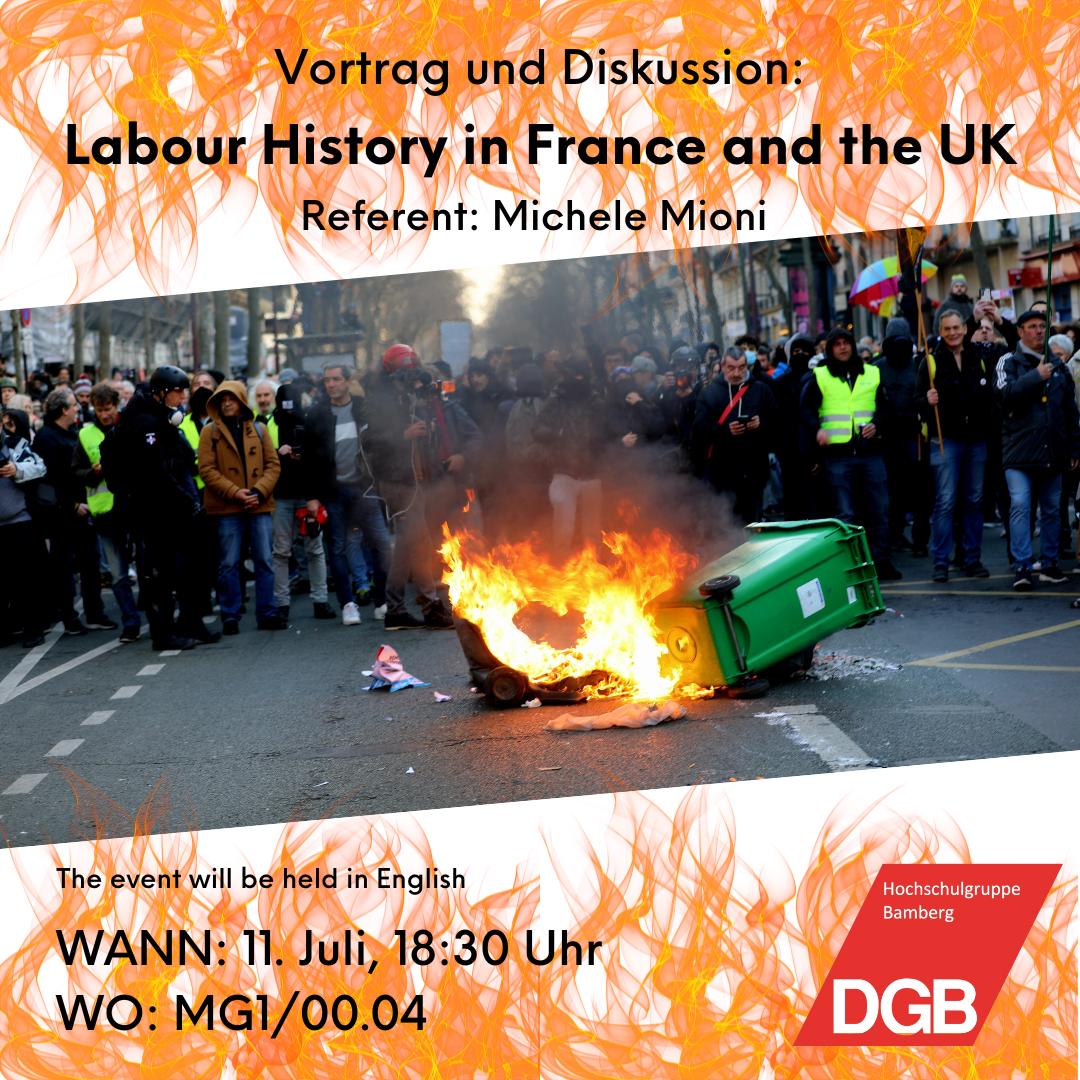(Bild von: Kollektiv Communique)
The lecture provides an overview of the trade unions’ history in Great Britain and France from the second half of the 19th century until nowadays. Its focus is on the impact of the labour movement on the social legislation in the two countries, placing the main developments of the unions’ action in a wider global perspective. This approach allows us to discuss worldwide trends like the welfare states, Neo-Liberal doctrines, globalisation, and the European integration process, by scrutinising how these processes influenced unions’ programmes. The lecture, therefore, aims to offer historical insights to discuss topical issues beyond just the British and French cases.
The lecture is broken down into three sections. The first part compares the making, rise, and main features of the trade unions in Great Britain and France from the 1880s to the end of the Second World War. This analysis highlights how and to what extent the ideological and organisational differences between the two movements affected social reforms in both countries. The second part locates the evolution of the unions within the framework of the global processes that occurred between the so-called “Golden Age” of Western capitalism (1945-73) and the establishment of Neo-Liberal paradigms (ca. 1973-1994). Great Britain and France offer a spotlight to grasp how the unions adjusted to the Neo-Liberal consensus in the respective (and very different) national contexts. The last part concerns the challenges that European integration posed to the unions. On the one hand, this part deepens the role of the unions in the debate on the so-called “European social model”. On the other, it discusses the impact that the post-Maastricht European Union had on the unions’ agendas and claims.
The event will be held in English
WHEN: Juli 11th, 6:30 pm
WHERE: MG1/00.04
If you want to know more about Dr. Michele Mioni and the professorship of public policy at the University of Bamberg, click here.

